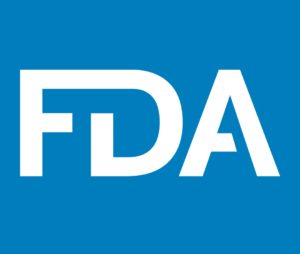Grease-proofing materials containing ‘forever chemicals’ will no longer be sold in US
Grease-proofing materials containing chemicals that have been linked to adverse health effects will no longer be sold for food packaging in the U.S.
The U.S. Food and Drug Administration announced the cessation of the sale of materials containing per- and polyfluoroalkyl substances (PFAS) on Feb. 28.
“This means the major source of dietary exposure to PFAS from food packaging like fast-food wrappers, microwave popcorn bags, take-out paperboard containers and pet food bags is being eliminated,” Jim Jones, FDA Deputy Commissioner for Human Foods, said in a statement.
 The FDA has authorized certain PFAS for limited use in cookware, food packaging and food processing equipment since the 1960s. Known as “forever chemicals” because of their persistence in the environment, PFAS have been linked to reduced immune system function and vaccine response in infants and children, increased incidence of gestational diabetes and other pregnancy complications, and testicular and kidney cancer, among other health problems, according to the National Institutes of Health.
The FDA has authorized certain PFAS for limited use in cookware, food packaging and food processing equipment since the 1960s. Known as “forever chemicals” because of their persistence in the environment, PFAS have been linked to reduced immune system function and vaccine response in infants and children, increased incidence of gestational diabetes and other pregnancy complications, and testicular and kidney cancer, among other health problems, according to the National Institutes of Health.
An analysis by Safer States, a national alliance of environmental health organizations, published Feb. 8 estimated 35 states will take steps this year to ban PFAS from some uses.
According to the FDA’s website, PFAS authorized for use in contact with food generally fall into four application categories: nonstick coating applications; sealing gaskets for food processing equipment; manufacturing aids; and grease-proof agents for paper food packaging. Current data indicate that only paper and paperboard agents would result in dietary exposure to PFAS that may cause a safety concern, according to the FDA.
“Today’s announcement marks the fulfillment of a voluntary commitment by manufacturers to not sell food contact substances containing certain PFAS intended for use as grease-proofing agents in the U.S.,” Jones said in the statement. “This FDA-led effort represents a positive step forward as we continue to reevaluate chemicals authorized for use with, and in, food. It underscores an important milestone in the protection of U.S. consumers from potentially harmful food-contact chemicals.”
In 2020, the FDA announced a voluntary phase-out of certain types of PFAS following a post-market safety assessment. Jones said the FDA will continue to conduct research and update its risk determinations.
“Assessing progress of these efforts takes time,” he said. “Various parts of the industry are implementing changes, and there are lags in data reporting. However, we are encouraged that through collaboration and a shared interest in the health and welfare of the public, together with industry we can achieve positive health outcomes.”
On Feb. 26, Indiana senators abandoned a bill that would have exempted thousands of the most widely used PFAS from future state or federal bans. More than 150 scientists signed a statement calling for accurate and thorough definitions of PFAS.
“The consequences of weak PFAS policies can reverberate for generations,” Lydia Jahl, a senior scientist at the Green Science Policy Institute, said in a statement. “It is great news for people and the planet that at least one such policy was blocked this week.”







